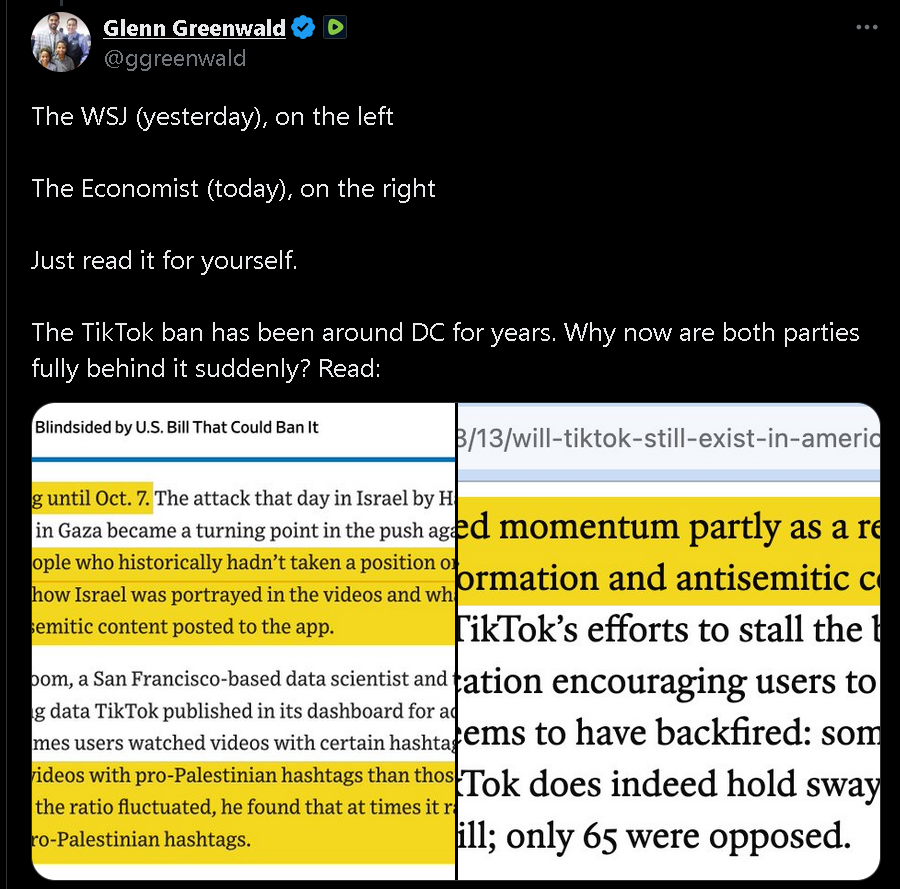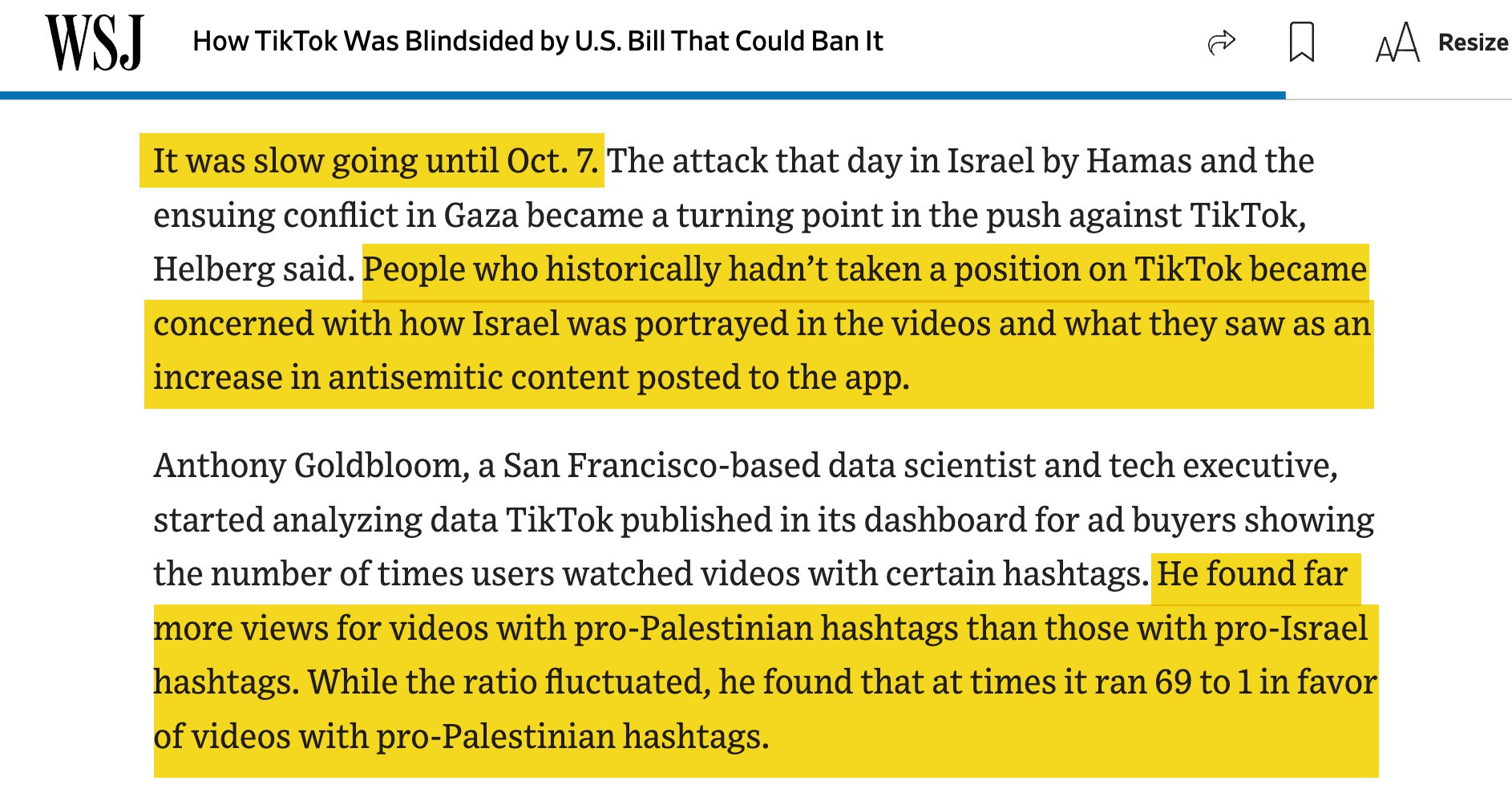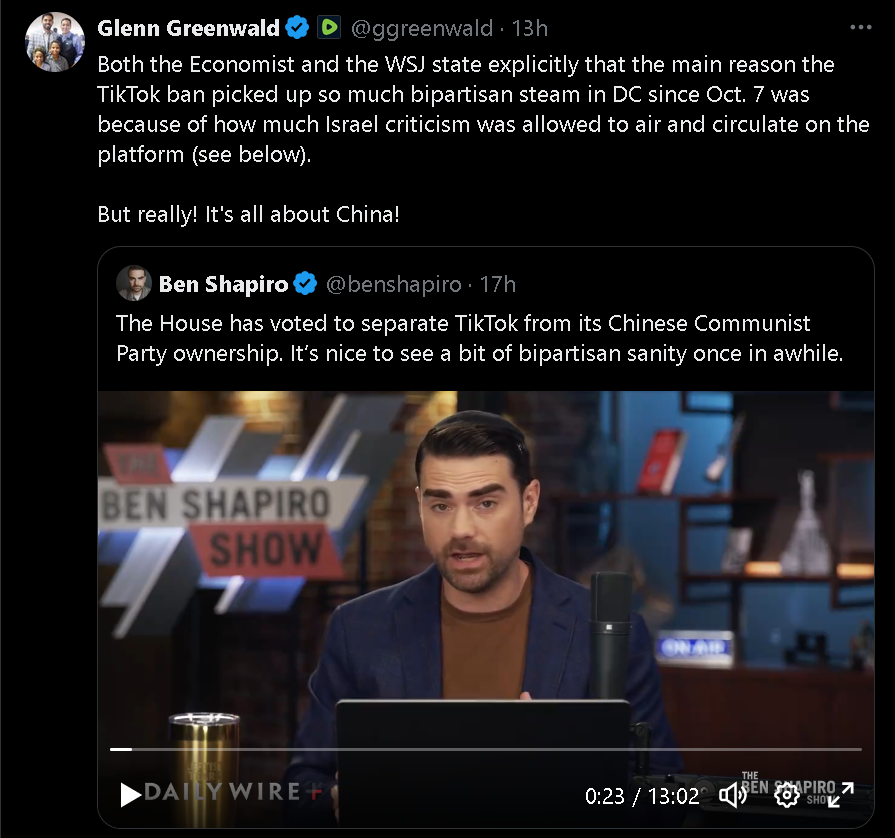this post was submitted on 15 Mar 2024
46 points (71.7% liked)
People Twitter
5274 readers
1206 users here now
People tweeting stuff. We allow tweets from anyone.
RULES:
- Mark NSFW content.
- No doxxing people.
- Must be a tweet or similar
- No bullying or international politcs
- Be excellent to each other.
founded 1 year ago
MODERATORS
you are viewing a single comment's thread
view the rest of the comments
view the rest of the comments






This isn't the best example but does perfectly highlight why you don't want foreign national companies controlling the discourse in your own country.
Canada should ban Facebook, and X, and tiktok.
Yeah, the U.S. isn't being the crazy one here, the rest of the world is crazy for letting the U.S. have so much influence. There's nothing preventing these U.S. companies from influencing elections throughout the world using their platforms. Maybe you can make the argument that the CCP is a more hostile regime and deserves more scrutiny, but I'd argue that Trump showed the U.S. can become hostile at any moment.
If only there was a social media platform that wasn't owned and controlled by any company, perhaps with many instances hosted by public non-profits, that people could feel safe discussing on.